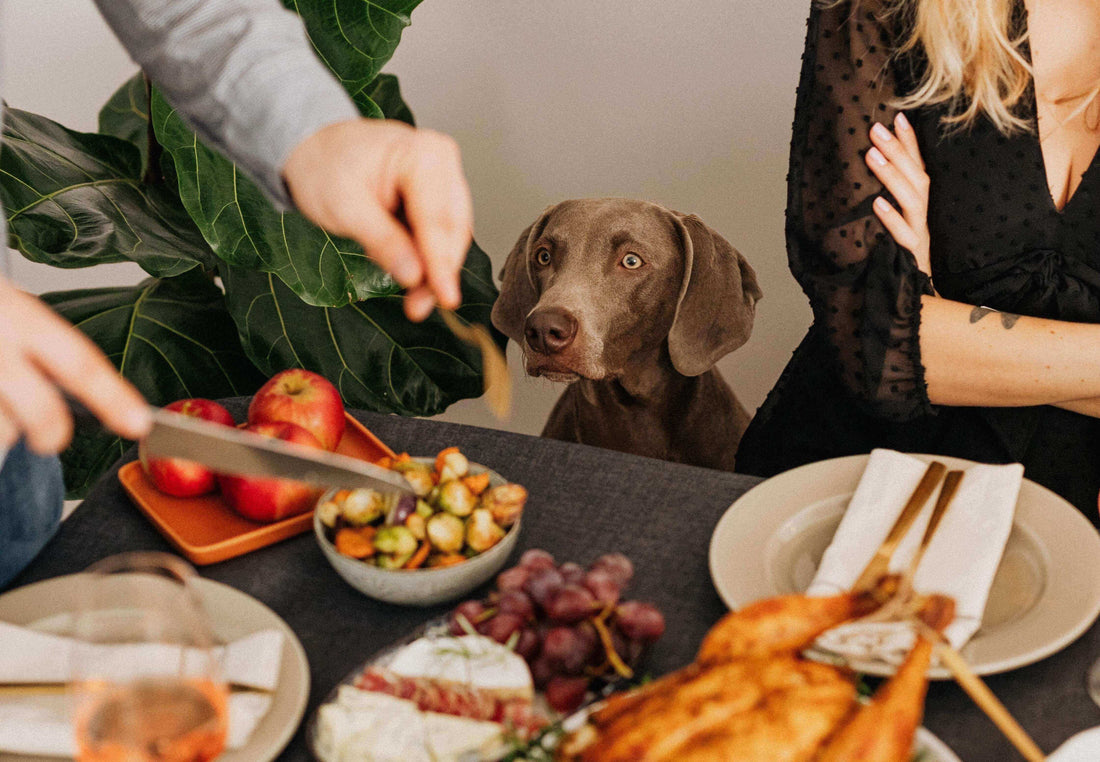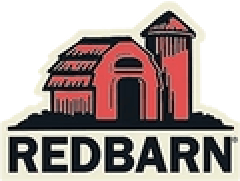
How to Have a Dog-Friendly Thanksgiving
Thanksgiving is just days away, and while you likely have all the ingredients for a delicious Thanksgiving dinner, your dog’s health and safety may not have crossed your mind. From precautions to take, food to avoid giving them, and food they can happily enjoy, here are our doggie safety tips so you can enjoy a fun, food-filled Thanksgiving.
Before Guests Arrive
Your dog's environment is about to be full of new smells and unfamiliar faces, which, depending on your dog, may have them jumping for joy or put them on edge. If you’re hosting Thanksgiving at your home, there are several safety measures you should take before the big day.
Where will your dog stay? Does your dog get anxious around large groups of people or are they an attention hog? It’s important to establish if your dog will be joining you and your family in the home, or if you plan to seclude them to a room or a portion of the house. Either way, make sure your dog has their own space to relax and drink water.
Tell guests you have a dog. If you have new guests, let them know you have a dog in the home in case they are allergic or afraid of dogs. Encourage your guests to keep an eye on their plates and drinks, since your pup will likely be sniffing around for leftovers, and always make sure guests close outside doors to avoid your dog escaping.
Make sure your dog's collar is on. With guests coming in and out of your front door, there’s a chance your dog could slip out while no one is noticing and go for a run around the block. Be sure your pup has their collar on with your current contact information in case they get lost. If you haven't already, we highly encourage you to talk to your veterinarian about microchipping your dog!
Food That is Toxic for Dogs

Most dogs love Thanksgiving, and we mean LOVE. Why? For the table scraps of course! A lot of pet parents (and their guests) are guilty of giving the dog the leftover food from their plate, and while this may seem generous, it can also be dangerous. Some food may have ingredients that are toxic for dogs that can cause upset stomach or even a trip to the vet’s office. Here are some common foods and ingredients to avoid giving your dog:
Onions and Garlic: While humans love this herb and veggie duo, onion and garlic can cause gastrointestinal irritation and could lead to red blood cell damage and anemia for our pets. While cats are more susceptible, dogs are also at risk if a large enough amount is consumed.
Grapes and Raisins: These cheeseboard favorites can cause vomiting, lethargy, and kidney failure in dogs. It’s still unknown why grapes and raisins are toxic for our canine friends, making it even more important that they avoid them.
Fat Trimmings: The throw-away pieces of meat are throw-away for a reason. While it may be tempting to treat your dog to some meat fat, excess fat trimmings can cause pancreatitis in dogs.
Chocolate, Coffee, and Caffeine: Also known as The 3 C's. Most pet parents have heard that chocolate is deadly for dogs, but why? Well, chocolate, coffee, and caffeine all contain substances called Methylxanthines, which are found in cacao seeds and the nuts of an extract used in some sodas. According to the ASPCA, Methylxanthines can cause vomiting, diarrhea, excessive thirst, urination, hyperactivity, abnormal heart rhythm, tremors, seizures, and even death in pets.
Note: Dark chocolate is more dangerous than milk chocolate. White chocolate has the lowest level of Methylxanthines, while baking chocolate contains the highest.
Macadamia Nuts: Macadamia nuts can cause weakness, depression, vomiting, tremors, and hyperthermia in dogs. Signs usually appear within 12 hours of ingestion and can last approximately 24 to 48 hours.
Xylitol: Xylitol is commonly used as a sweetener in many products, including gum, candy, and baked goods. It can cause insulin release in most pets, which can lead to liver failure. Signs include vomiting, lethargy, loss of coordination, and even seizures.
Alcohol: It's vital that you and your guests keep your alcoholic beverages out of reach of your pets. Alcohol can cause vomiting, diarrhea, central nervous system depression, difficulty breathing, and even death in dogs.
If you suspect your dog has ingested any of these foods or substances (especially alcohol), contact your veterinarian immediately or the ASPCA Animal Poison Control Center at (888) 426-4435.
Do Not Give Your Dog Leftover Bones!
After the turkey and other meats have been carved, it could be tempting to give your dog the leftover bones for them to chew on, but this is a big no-no! Bones from poultry are going to be thin and easily breakable, which can cause choking, cut your dog’s mouth and throat, and may even result in intestinal damage.
You should never give your dog a bone that was not properly cooked or processed by a pet product company. Our collection of Redbarn Bones are baked and tested to ensure the safest quality possible for your dog.
Note: Pork bones are less durable than beef bones, and not recommended for strong chewers.
Food Your Dog Can Enjoy

While there are several Thanksgiving foods your dog should avoid, there are also plenty safe for them to eat when properly prepared. It's Thanksgiving, after all, and who are you more thankful for than your furry best friend? Here are some tasty foods your can prepare for them:
Sweet Potatoes: Sweet potatoes are a rich source of vitamins A, C, B6, potassium, calcium, and iron, just to name a few! Be sure to cut the skin and cooked them thoroughly before serving to your pup. Learn more from our blog The Benefits of Sweet Potatoes for Dogs.
Turkey: Turkey is a great source of protein for dogs but it’s important to ensure your dog doesn’t ingest any of the toxic ingredients (like garlic and onion) when consuming it. It’s also a good idea to cut off the skin to avoid excess fat and seasonings that could cause stomach upset.
Pumpkin: Not only is pumpkin safe for your dog, but it's great for their digestive system too! Pumpkin contains vitamins like A, C, and E, as well as minerals like iron and potassium. It's recommended to feed your dog either fresh pumpkin or plain, canned pumpkin, and be sure to avoid canned pumpkin with added sugars, seasonings, and artificial flavors and colors. It's so good, we even include pumpkin in our Dry Dog Food recipes!
Carrots: Carrots not only provide a delicious crunch, but they are also a rich source of vitamin A, beta-carotene, and fiber. Learn how to prepare them for your pup on our blog, The Top 5 Reasons to Include Carrots in Your Dog’s Diet.
Apples: Cutting apples for an apple pie? Give a couple of slices to your dog! Wash your apples thoroughly and be sure not to feed your dog the apple core or seeds, since apple seeds contain cyanide that can harm both humans and dogs.
Green Beans: This Thanksgiving favorite is a great source of calcium, vitamin K, and protein for your dog. Dogs can eat green beans raw or cooked, but avoid adding seasoning to avoid stomach upset and toxic herbs and spices.
Creating a safe and delicious Thanksgiving meal for your dog is a great way to let them join the celebration and show them how thankful you are to be their pet parent. Do you have any doggie Thanksgiving advice? Share your tips in the comments below!



